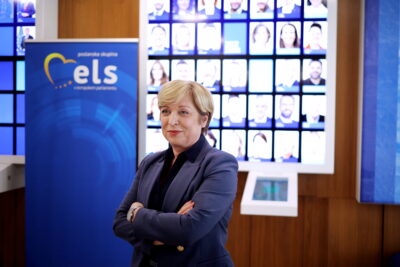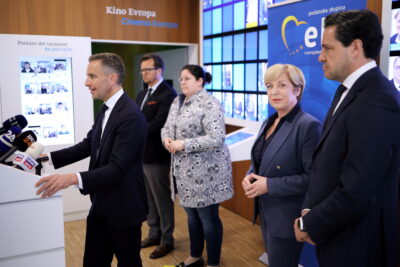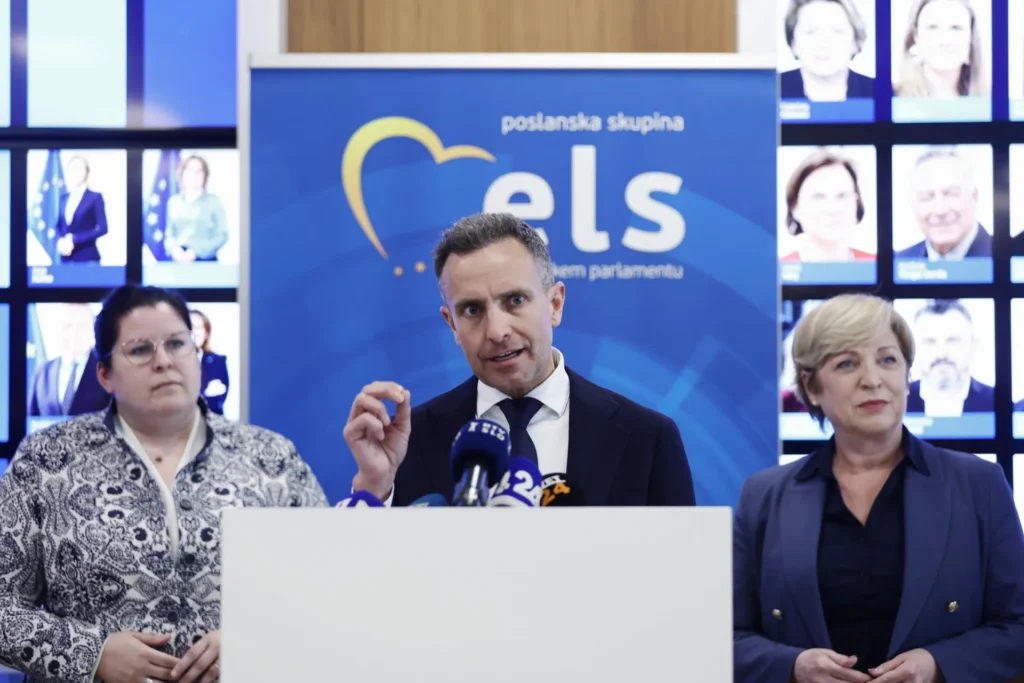Speaker of the National Assembly Urška Klakočar Zupančič and representatives of the ruling coalition did not respond to an invitation to meet with a mission of the European People’s Party (EPP) political group, which came on a one-day visit to Slovenia on Monday, said the head of the mission, Tomas Tobé. “We are surprised by the lack of interest,” he told reporters in Ljubljana at the end of the mission.
The mission met on Monday with representatives of Slovenian institutions, media and the civil society. The aim of the mission was to get a first-hand insight into the situation in Slovenia and, in addition to Swedish MEP and EPP Vice-President Tomas Tobé, it also included Slovenian MEP Romana Tomc (EPP/SDS), Spaniard Raul de la Hoz Quintano, German Lena Düpont and Pole Michal Wawrykiewicz.
Fear of the delegation
Tobé explained at a press conference in the House of the European Union that they wanted to know why there had been more than 100 extraordinary sittings of the National Assembly during the current parliamentary term. He said that they had spoken to the Vice-President of the National Assembly, but he would also like to talk to the Speaker of the National Assembly, who had not responded to the invitation.
According to MEP Romana Tomc, the reactions of the other side to the mission show that the delegation is important and that they are afraid of it. “The fact that some of those who had the opportunity to speak rejected our meeting speaks for itself,” said the Slovenian MEP and Vice-President of the EPP Group. “We came in good faith, and we will continue with our work within the work of the Parliament,” she added.

Tobé pointed out that the mission was in Slovenia to assess the state of the rule of law, which he takes very seriously. It is important that we have the same standards for everyone in the European Union, regardless of who governs each member state, he said.
“In all democracies, we have to have a system of checks and balances,” Tobé stressed. Independent institutions are key, he said, especially to ensure that budgets are spent in a transparent way. This is something they would have liked to discuss with the ruling coalition, for example, about the Court of Audit, which was deprived last year of significant funding for this year by the National Assembly, he said.

Tobé described the media as a pillar of democracy: “Whether the government is left-wing or right-wing, journalists have to do their job.” This is even more important for public media, such as the public broadcaster, he said, pointing to the absence of a decision by the Constitutional Court on the Radio-Television Slovenia Act, reported the Slovenian Press Agency (STA).
He expressed the hope that Slovenia would address some of their concerns and apparent problems, and the expectation that all the recommendations of the European Commission’s report on the rule of law would be implemented without delay. “For us, this is a start,” Tobé said of the mission to Slovenia. It is too early to say what the next steps will be, he said.
C. Š.


